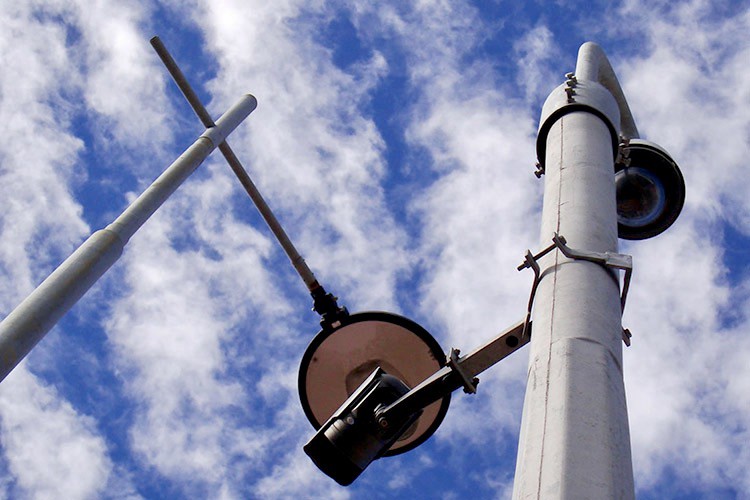We are giving up our privacy, say researchers
Most South Africans don’t realise how much information they are giving away
CCTV cameras in the City of Cape Town play a negligible role in reducing crime, said Professor Jane Duncan of the Media Policy and Democracy Project at a panel discussion held in Salt River on privacy in South Africa.
Only about 5% of the 2,640 incidents captured on CCTV cameras in 2015 resulted in arrests, she said.
There are currently 560 cameras operating throughout Cape Town, according to the City of Cape Town.
Also speaking at the event, Dale McKinley, author of a document on privacy and surveillance in South Africa, pointed to a number of areas where private information is collected about citizens, such as biometric data for social grants and CCTV surveillance systems.
He said most South Africans do not realise how much personal information they were giving to the state and private companies.
“Very few South Africans seem to understand or know what their rights are with regard to privacy issues,” McKinley told the audience.
He criticised the proliferation of CCTV cameras in the City.
“It almost goes without saying that people would give up some rights in order to feel more secure,” said Duncan, explaining the rationale for introducing cameras.
But the use of CCTV is being advanced by “anecdotal successes” when academic research paints a different picture, said Duncan.
She said that in spaces such as parking lots CCTV cameras could be beneficial, but in “more public spaces” CCTV cameras simply “displace crime”.
Duncan said a study conducted by the police in Benoni in Gauteng found that when CCTV cameras were rolled out in the CBD, crime began to drop, but this was accompanied by an increase in crime in areas outside the CBD where there were no CCTV cameras.
In Cape Town, Duncan said cameras were heavily subsidised by local businesses in the CBD, but in townships such as Khayelitsha CCTV cameras were mostly publicly funded because businesses did not have the same interest in funding the cameras.
Duncan said that in the UK, CCTV cameras had been used to track the movements of activists.
CCTV cameras can incorporate facial recognition as well as number plate recognition. But Duncan said the cameras had difficulty recognising black faces and the faces of young people. This could lead to cases of mistaken identity where a young black person might be falsely accused of a crime.
Another concern raised at the event was that of biometric data. McKinley said biometric data could be falsified. If this happened, there was little recourse; while pin numbers could be changed, fingerprints could not.
Some countries are therefore moving away from the use of biometric data, he said.
The Department of Home Affairs used biometric data “to control people, to allow government tracking and surveillance on a level not otherwise thought possible” said McKinley.
The main reason given for the rollout of biometrics and smart IDs in South Africa was to “protect ‘national security’”, boosting the fight against terrorism and organised crime. Other justifications were to stop people from using multiple identities or fraudulent documents.
But, said McKinley, there is “ample evidence” suggesting that poor management of existing records made it likely that digitalised records would contain false or incomplete information.
Support independent journalism
Donate using Payfast

Don't miss out on the latest news
We respect your privacy, and promise we won't spam you.
Next: Landmark court ruling on climate change
Previous: Did policeman fire handgun at Philippi school protest?
© 2017 GroundUp. 
This article is licensed under a Creative Commons Attribution-NoDerivatives 4.0 International License.
You may republish this article, so long as you credit the authors and GroundUp, and do not change the text. Please include a link back to the original article.

